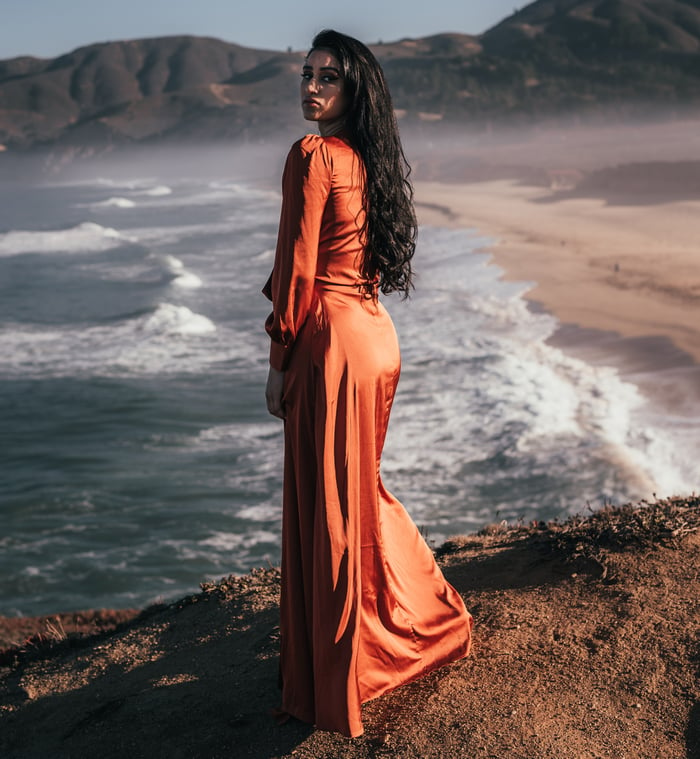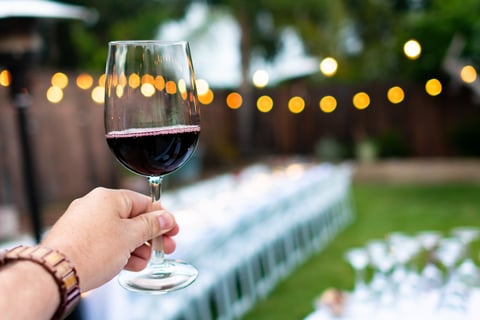 Photo: Marcus Silva
Photo: Marcus Silva
Imagine wrapping yourself in a soft and lustrous piece of fabric. The twist? It’s made from insect saliva. That’s the reality of silk, a natural fiber produced by insects, derived from their nests and cocoons. It may be luxurious and soft but silk production today is harmful to the animal kingdom and the environment.
According to PETA, roughly 3,000 silkworms are killed to make a single pound of silk. As the material is derived from the cocoons of larvae, most silkworms raised by the industry don’t live past the pupal stage.
It’s time we all switch to conscious silk alternatives. Here are five alternatives that are far more sustainable and don’t involve any animal cruelty.
1. Orange Fiber
 Photo: Orange Fiber
Photo: Orange Fiber
Surprising as this might be, a fabric made from an orange is soft, shiny and works as a great silk alternative. This innovative feat is thanks to the efforts of Orange Fiber, an Italian company that uses citrus peel that would otherwise be discarded.
The high rate of consumption of oranges in Italy may have helped catalyze this very specific innovation. In that country alone, more than one million tonnes of citrus fruit is wasted every year.
Both luxurious and high street fashion brands are getting on board the orange express. Salvatore Ferragamo was the first to launch a capsule collection made with Orange Fiber. This was followed by H&M’s Conscious Collection, which is taking the fabric mainstream. Today, H&M offers a wide range of clothes made from orange fiber.
2. Tencel
 Photo: Amour Vert
Photo: Amour Vert
Tencel is well-known in the sustainable fashion industry for being both eco-friendly and biodegradable. The fabric is made from wood pulp cellulose and is considered one of the most sustainable vegan materials in use today.
The Tencel website lists an extensive catalogue of brands that use the material. One example is Encircled, a Canadian ethical clothing brand that makes its range using only sustainable materials. Amour Vert is another clothing brand that spins tencel fabric into a diverse range of items from tops to dresses and loungewear. Other popular brands to look out for include Organic Basics, Toad&Co, All Birds and Patagonia.
See also: 10 eco-friendly swimwear brands to add to your wardrobe
3. Ramie
 Photo: Dressarte Paris
Photo: Dressarte Paris
Ramie is one of the oldest existing fibre crops, having been in use for over 6,000 years since the days of Ancient Egypt. It originates from the stalks of a flowering plant from the nettle family. The plant also grows quickly and is available for harvest from three to six times a year. When spun while wet, it creates a soft, silky yarn. The fabric has a natural wrinkle-free texture. Despite being used as a fabric since ancient times, it has only begun making inroads in the fashion sphere in recent years. Those looking to acquire clothes made from this fabric can check out French sustainable womenswear label Dressarte Paris. It has a collection made from 100 percent ramie, available in standard or customized sizes.
4. Microsilk
 Photo: Bolt Threads
Photo: Bolt Threads
After studying silk proteins spun by spiders, Bolt Threads, a US based material innovation company, decided to replicate the same properties as spider silk to make Microsilk. Microsilk is made by infusing spider DNA with yeast, sugar and water in a fermentation process. The mixture is then purified, resulting in liquid silk protein that forms a supple, versatile yarn that can be used in many different applications. While the process involves no spiders in its development, the fabric mimics the soft yet durable and resistant properties of spider silk. Stella McCartney was the first to showcase a dress made from Microsilk at the MoMA (NYC) in October 2017. Then in 2019, Stella McCartney x Adidas unveiled the Biofabric Tennis Dress, created with Microsilk.
5. Bamboo Silk
 Photo: Spun Bamboo
Photo: Spun Bamboo







